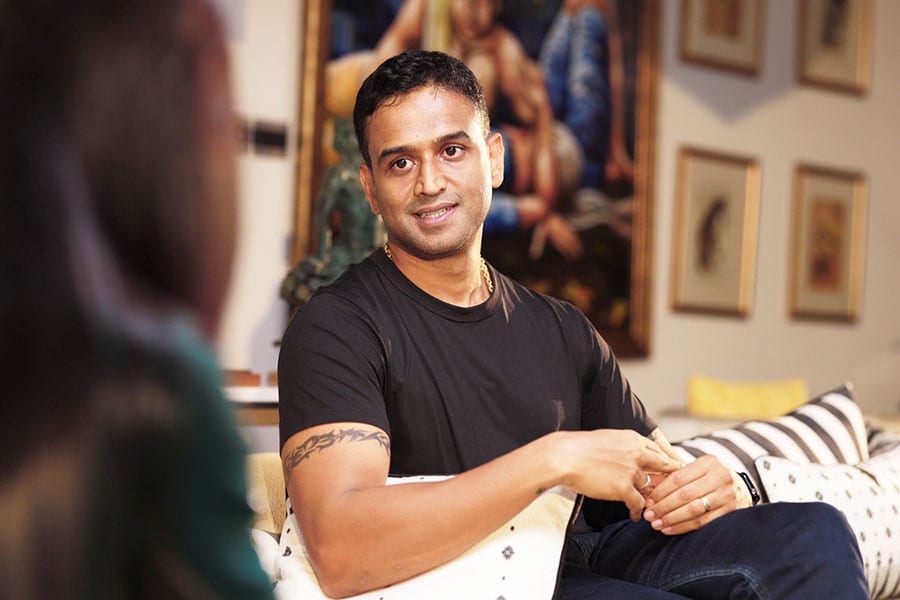
I'm proud that at Zerodha we don't have growth targets: Nithin Kamath
"I've blown up a couple of times, made money and lost money, so I know it' a roller-coaster, and if you get very excited at the top, there is also a drop waiting around in some corner," says Zerodha's co-founder and CEO as he talks about work, life, and more in part two of the conversation
 Nithin Kamath, co-founder and CEO of Zerodha, during Pathbreakers video shoot at Prestige Kingfisher Towers, UB city, Bangalore on November 22, 2022. Image: Vikas Chandra Pureti for Forbes India.
Nithin Kamath, co-founder and CEO of Zerodha, during Pathbreakers video shoot at Prestige Kingfisher Towers, UB city, Bangalore on November 22, 2022. Image: Vikas Chandra Pureti for Forbes India.
In an exclusive interview on Forbes India Pathbreakers, Zerodha’s Co-founder and CEO, Nithin Kamath, shares his playbook for building a sustainable business ground-up. “Our core philosophy has been that we will not do anything to the customer that we do not want done to us. What I feel most proud about is that Zerodha has reached 1.1 crore customers without ever marketing or advertising. It's unheard of not just in India but globally. At the end of the day, product is also important. That is really the moat for the business. That’s how we have been able to grow till here,” he says.
On a relatively conservative basis, Zerodha is valued at around $3 billion. The online trading platform reported a net profit of Rs2,094 crore in FY22 and analysts expect a 12 percent rise in profits in FY22. Kamath talks about the need for socially responsible organisations, and why he has pledged to give away most of his wealth. “Being on a rich list is a pain and I wish we could have all this in stealth because all that means nothing. But personally, money has given me the freedom to pursue everything I always wanted,” Kamath says.
Part one of the conversation: I wonder why there are only a few businesses like us that are built to generate profits and not raise venture capital: Nithin Kamath
Here are edited excerpts:
‘Regulatory foresight helped’
Kamath says the founding team of Zerodha initially thought they had hit the jackpot if they had 100,000 customers. “We didn’t have large ambitions when we started. As the business grew and teams started building, ambitions slowly and steadily kept growing. When online onboarding started in 2016, I think we were just more nimble. Even today as a large organisation, I think we are among the first to adapt to changes. The day I stop doing that is when we can get disrupted by someone else. Regulatory foresight has helped. If you are a start-up you are supposed to be fast. The problem with a lot of start-ups today is that they almost end up becoming as fast as the incumbents after a while. How do you maintain the lead on competition? I think you just have to keep taking bets and improving,” he adds.








